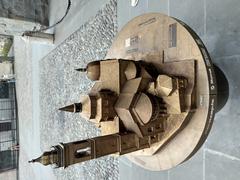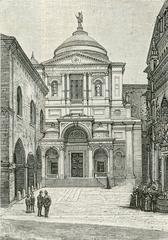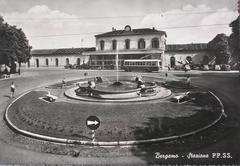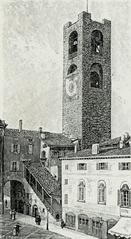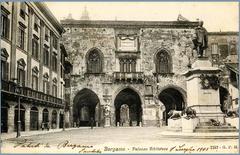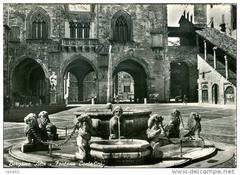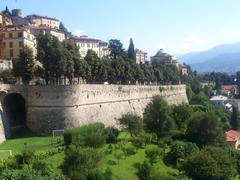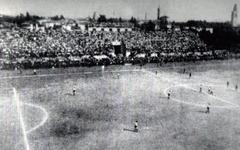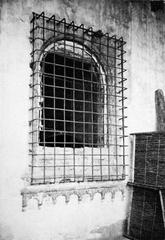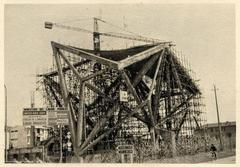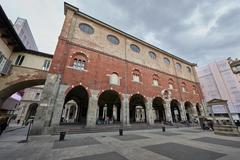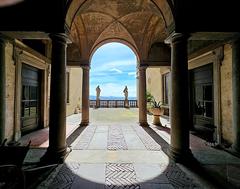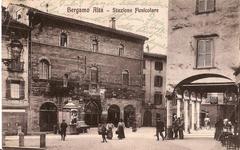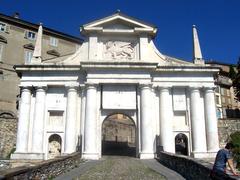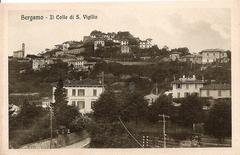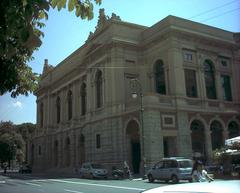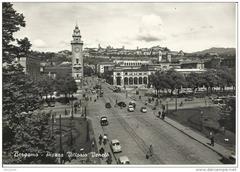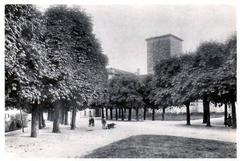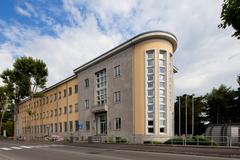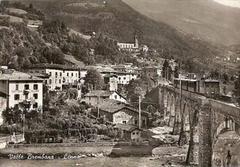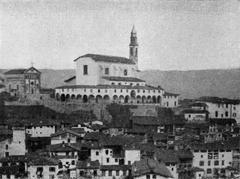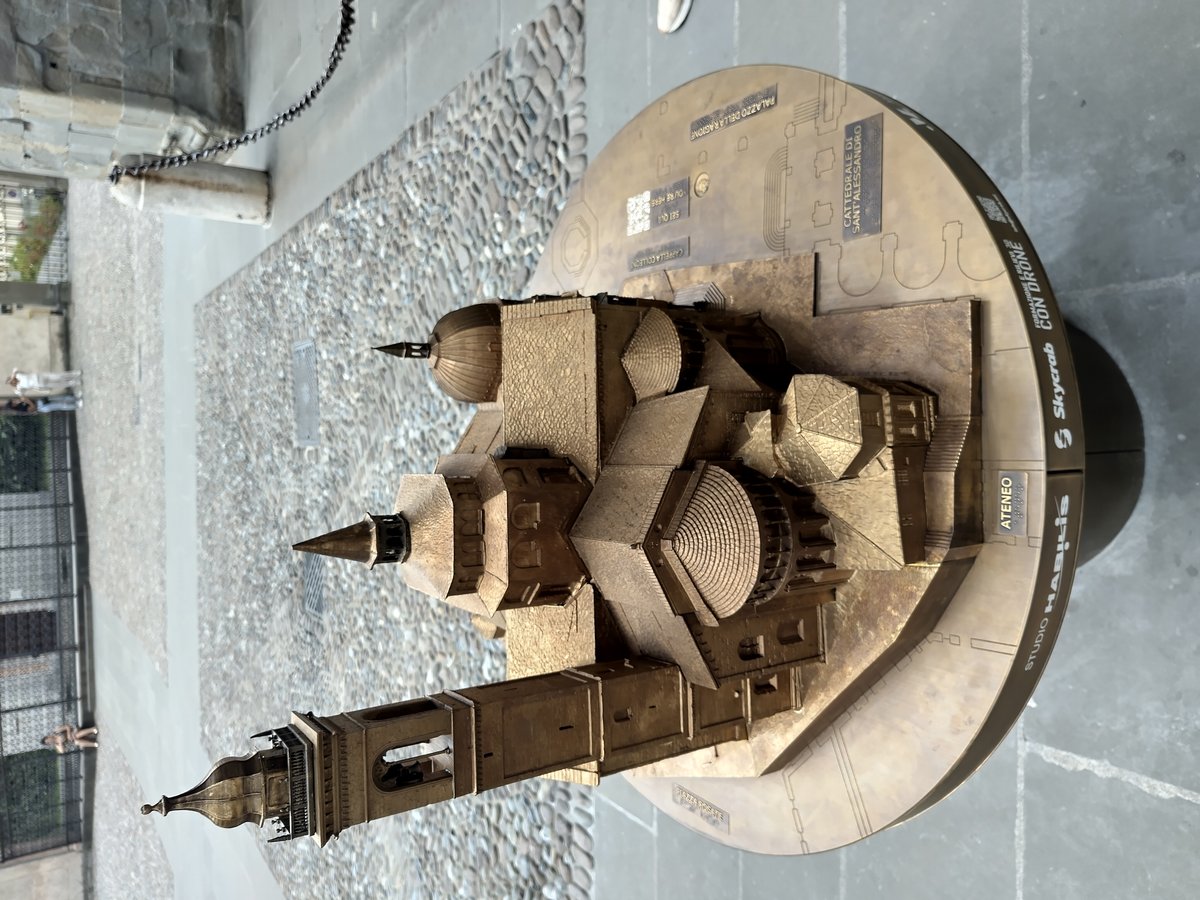
Santa Maria Maggiore Bergamo: Visiting Hours, Tickets, and Historical Sites Guide
Date: 14/06/2025
Introduction: Santa Maria Maggiore’s Heritage in Bergamo
Santa Maria Maggiore, situated in the heart of Bergamo’s Città Alta (Upper Town), is one of Italy’s most celebrated religious and historical landmarks. This basilica offers a window into nearly a thousand years of architectural evolution, artistic achievement, and spiritual resonance. Established in 1137 during a time of hardship and built as a votive offering to the Virgin Mary, Santa Maria Maggiore has grown into a monument reflecting Bergamo’s resilience, artistic legacy, and communal pride (Salt in Our Hair; Explore Bergamo).
Visitors are captivated by the basilica’s robust Romanesque exterior, the opulent Baroque interior, and the attached Colleoni Chapel—a Renaissance jewel. The church remains a vibrant center for worship, music, and civic events. With free entry and an open-door policy, Santa Maria Maggiore invites everyone to experience its spiritual and artistic riches (Spotting History; WanderInEurope; Wanderlust and Life; Visit Bergamo).
This guide provides essential information on opening hours, ticketing, accessibility, key historical and artistic features, and practical tips for your visit to Santa Maria Maggiore.
Table of Contents
- Introduction
- Visiting Hours and Tickets
- Accessibility and Visitor Tips
- Historical Overview
- Architectural and Artistic Highlights
- Religious and Civic Significance
- Preservation and Modern Role
- Plan Your Visit: Practical Information
- Nearby Attractions
- Frequently Asked Questions (FAQ)
- Summary and Call to Action
- References
Visiting Hours and Tickets
As of June 2025, Santa Maria Maggiore is open:
- Monday to Saturday: 9:00 AM – 12:30 PM and 2:30 PM – 6:00 PM
- Sunday and Public Holidays: 9:00 AM – 10:30 AM and 1:30 PM – 6:00 PM
- Winter Hours (Nov–Mar): Closing at 5:00 PM
Check the official website or Visit Bergamo for updates, especially around holidays and special events.
Admission Fees (2025):
- Adults (25–70 years): €5
- Reduced (14–25 years and over 70): €2
- Free: Children up to 13, residents, people with disabilities and companions, schools, clergy, journalists, military, and law enforcement (Budget Your Trip)
Tickets are sold at the entrance; no advance booking is required for individuals, but guided tours must be reserved in advance.
Accessibility and Visitor Tips
- Mobility: The church is accessible via a side entrance near Piazza Duomo. The funicular from the Lower Town includes one stair-lift-equipped cabin (Visit Bergamo).
- Parking: Limited and reserved for residents in Città Alta; public parking at Piazza Mercato del Fieno (300m away) includes a disabled space.
- Restrooms: Available onsite.
- Dress Code: Modest attire is required; cover shoulders and knees.
- Photography: Allowed without flash except during services and inside the Colleoni Chapel (where photography is prohibited).
- Visitor Etiquette: Maintain silence and respect during services.
Historical Overview
Santa Maria Maggiore stands on a site of ancient religious significance, likely built over a Roman temple and an 8th-century church (Spotting History). Construction began in 1137, motivated by the city’s vow to the Virgin Mary during a devastating plague (Salt in Our Hair). The basilica evolved over centuries, reflecting Bergamo’s medieval prosperity and the influence of the Venetian Republic.
Architectural and Artistic Highlights
Romanesque Exterior
The exterior is marked by thick stone walls, rounded arches, and decorative portals. The main façade lacks an entrance due to its historical link with the Bishop’s Palace; instead, two ornate side portals serve as primary access points: the north portal by Giovanni da Campione (1353) and the south-western Porta della Fontana by Pietro Isabello (1521) (Wikipedia). Apses are adorned with arcades, semi-columns, and friezes of vegetal and geometric motifs.
Colleoni Chapel: Renaissance Contrast
Commissioned by Bartolomeo Colleoni in the late 15th century, the Colleoni Chapel features a polychrome marble façade and exquisite Renaissance decoration (Wild About Travel). Its harmonious design and intricate intarsia stand in contrast to the Romanesque basilica (Explore Bergamo).
Baroque Interior and Masterpieces
The basilica’s interior is a Baroque marvel, with gilded woodwork, stucco, frescoes, and tapestries (Explore Bergamo). The nave and aisles are adorned with sumptuous decoration, creating a vibrant spiritual ambiance.
Choir Stalls and Inlaid Panels
The wooden choir, designed by Bernardo Zenale and Andrea Previtali, features Renaissance intarsia panels crafted after designs by Lorenzo Lotto (1524–1555). These panels depict biblical scenes and are masterpieces of Italian woodwork (Wikipedia; Spotting History).
Frescoes and Tapestries
Giottesque frescoes in the right transept date from 1347, and the basilica’s walls are lined with tapestries from Flanders and Florence (16th–17th centuries), depicting biblical narratives (Spotting History; Explore Bergamo). Paintings by Alessandro Allori and Luca Giordano further enrich the interior (Triphobo).
Musical Heritage and Tombs
Santa Maria Maggiore houses one of Italy’s oldest pipe organs and is the burial site of composer Gaetano Donizetti and his mentor Simone Mayr—pilgrimage sites for music enthusiasts (Explore Bergamo).
Religious and Civic Significance
The basilica remains a living center for worship, hosting major religious festivals, processions, and music events. Its construction as a votive church during the plague underscores its significance as a symbol of communal gratitude and faith (Wanderlog).
Preservation and Modern Role
Santa Maria Maggiore’s original structure and decoration have survived largely intact, due to Bergamo’s avoidance of major historical destruction (Nomads Travel Guide). Ongoing restoration ensures its treasures endure for future generations, while the basilica continues to function as a place of worship, music, and learning.
Plan Your Visit: Practical Information
- Getting There: Located in Città Alta, a short walk from the funicular station and Piazza Vecchia.
- Best Times: Early mornings and late afternoons on weekdays are quieter. Late fall and early spring are less crowded (Budget Your Trip; The Tourist Checklist).
- Duration: Allocate about one hour; art lovers may want more time.
- Guided Tours: Book in advance for expert insights (Visit Bergamo).
- Facilities: Restrooms, gift shop, and occasional Wi-Fi available.
Nearby Attractions
- Colleoni Chapel: Adjacent, with Renaissance architecture (Savoring Italy)
- Bergamo Cathedral: Free entry, same square
- Piazza Vecchia: Iconic city square
- Civic Tower (Campanone): Panoramic views
Frequently Asked Questions (FAQ)
Q: What are the opening hours?
A: Mon–Sat: 9:00 AM–12:30 PM, 2:30 PM–6:00 PM; Sun/Public Holidays: 9:00 AM–10:30 AM, 1:30 PM–6:00 PM. Winter closing: 5:00 PM.
Q: How much are tickets?
A: Adults €5; reduced €2; free for children under 14, residents, and other eligible groups.
Q: Are guided tours available?
A: Yes; reserve in advance via [email protected].
Q: Is the basilica accessible?
A: Yes, via side entrance and funicular cabin with stair lift.
Q: Can I take photos?
A: Yes, without flash in the basilica; not permitted in the Colleoni Chapel.
Summary and Call to Action
Santa Maria Maggiore is a living chronicle of Bergamo’s spiritual, artistic, and civic history. From its Romanesque origins and Renaissance artistry to its vibrant role in community life today, the basilica is an essential destination for cultural travelers. Accessibility, central location, and rich programming make it welcoming to all.
Plan your visit with the latest information, and consider booking a guided tour for deeper appreciation. Download the Audiala app for audio tours and follow local tourism channels for updates. Explore Bergamo’s Città Alta—and let Santa Maria Maggiore inspire your journey through Italian heritage.
